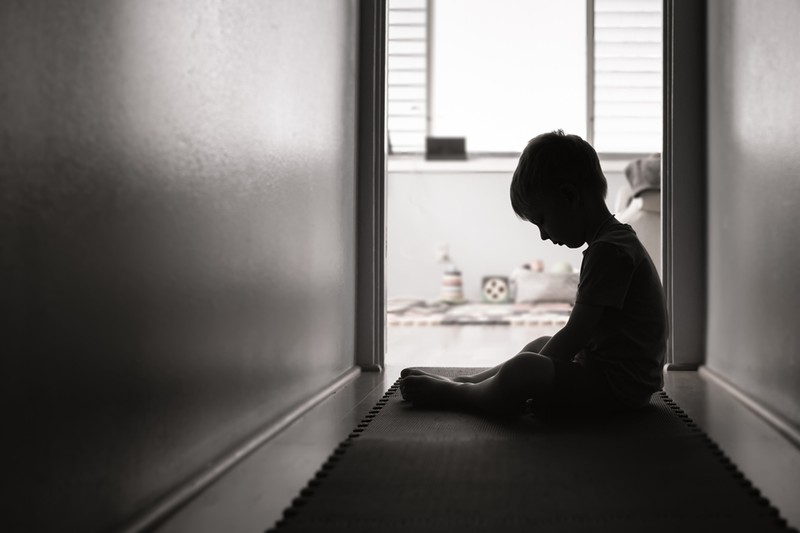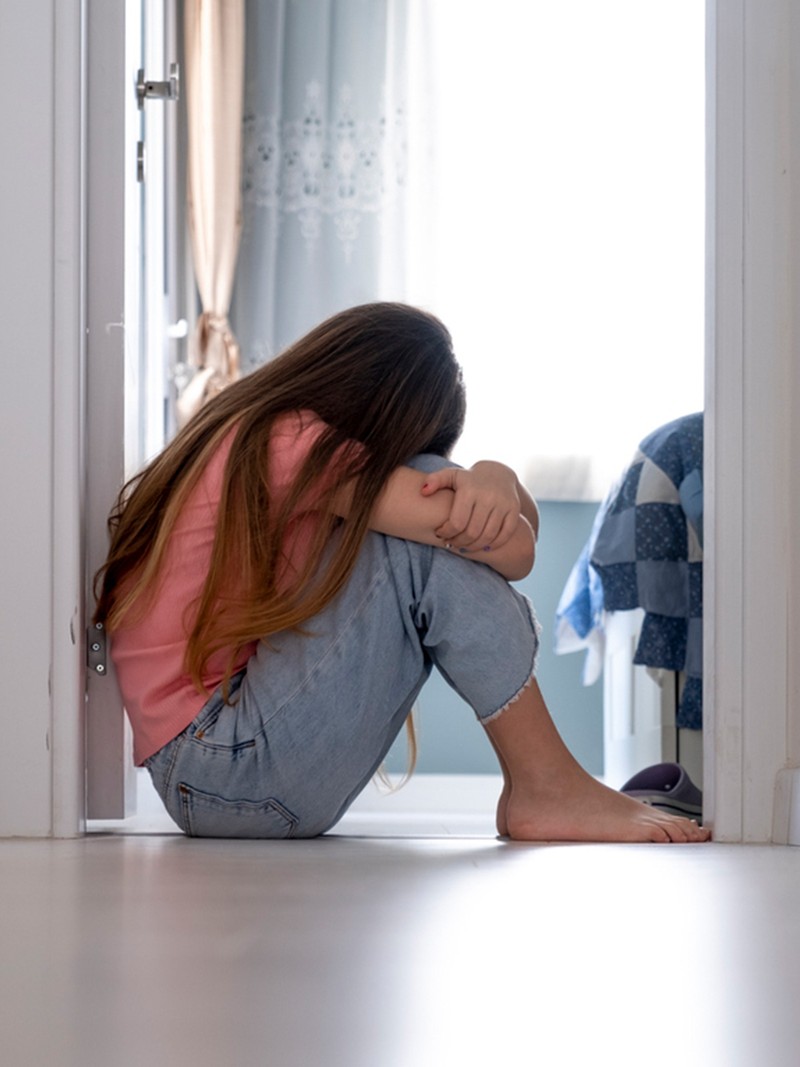Does Your Child Have Anxiety?
As a top line – is it normal for children to have a certain level of anxiety?
“All children feel anxious sometimes and it’s a normal human emotion – whatever your age. Anxiety is our body’s way of telling us something is wrong, a warning system that allows us to stay safe. But sometimes this warning system gets set off for no reason. Sometimes, you can experience physical and emotional symptoms without a rational external cause. Children can get stuck in cycles of anxiety because they don’t have an effective way to work through these difficult feelings. If a child experiences unwarranted fears and worries that start to interfere with home and school life, then they may be experiencing an anxiety disorder.” – Dr Jenna Vyas-Lee, clinical psychologist & co-founder of mental health clinic Kove
Here, we asked Dr Jenna and Joanne Jackson, family therapist at The Soke, to answer five questions per age group…
UNDER FIVES
How does anxiety present itself in this age group?
“Children at this age don't tend to recognise anxiety as a concept but they can experience feelings in their body, such as stomach aches, leg pain or headaches. You may be able to visibly see it in their face, they may stop playing, start seeking excessive reassurance, have more tantrums and emotional outbursts or just be more tearful than usual. They may also start expressing challenging behaviour, changes in sleep or appetite or start wetting the bed.” – Dr Jenna
“As most of the communication within this group is pre-verbal, parents of babies and toddlers will need to look out for subtle cues – for example, a toddler regularly holding their tummy at mealtimes. Attachment at this age between the infant and the parents can be impeded when a parent exhibits anxiety, too. Because this transference could be internalised by the infant, it’s worth keeping an eye on your own mental health.” – Joanne
How can you talk to your child about it if you think they're displaying signs?
“Give their feelings a language – children this young often can’t describe their emotions. Talk to them about how they feel in their bodies rather than thoughts they might have. Give the anxiety a name and externalise it. Talk about this character in the third person e.g. “When we have these feelings, it means ‘Silly Milly’ is around.” It might also be worth asking them to share when they notice ‘Silly Milly’ comes around.” - Dr Jenna
“Infants look for cues to feel safe so try to provide them consistently. Sensory aids, for example gently stroking their head, making a soothing sound, or smiling can instantly put them at ease.” – Joanne
Where do you start and where do you go for further treatment?
“Even though children may love seeing a therapist and practising strategies in a session, it’s unlikely they will be able to use them in a high stress situation at this age. Parents will experience this at home too e.g. when they are calm, the child will talk about their feelings but the same strategies don’t work in tense moments. At this age, it’s most important to speak to a GP to rule out any medical causes.” - Dr Jenna
What coping strategies can you introduce at home?
“Some good calming strategies include breathing techniques and distractions. Also, talk to the child about things that make them anxious in a developmentally appropriate way. Talk them through the steps so they understand that for instance, they’re worried they’ll do something wrong, then their body starts to hurt. Do this with the whole family, so it feels like a problem shared.” – Dr Jenna
What books, apps or other tech would you recommend?
“There are so many books and apps out there – but I like that Headspace has done a collaboration with Sesame Street called Monster Meditations.” – Dr Jenna

5-10 YEAR OLDS
How does anxiety present itself in this age group?
“Different types of anxiety can stem from thoughts related to separation issues and social settings, to feelings resulting from phobias and trauma, and obsessive behaviours. Look for obvious signs that you would associate with anxiety: short breath, perspiration (hands), palpitations etc.” – Joanne
How can you talk to your child about it if you think they're displaying signs?
“Changes in behaviour in relation to school, eating and friendships as well as repeated checking behaviours, regressive behaviours, recurrent tearfulness and withdrawn behaviour may benefit from having a conversation. If there have been significant changes within families such as a bereavement, a trauma, separation, or new partners it can be useful for families to receive psychological support as a unit.” - Joanne
“Focus on giving them lots of language, as well as spending quality time together, such as walks in the park where you can gently add in some discussion about what is driving the anxiety in basic terms. Their explanations might not always make sense to you but validating their experiences will go a long way. Some children in this age range may still struggle with the language component, so sticking to the body and externalising strategies are key.” – Dr Jenna
Where do you start and where do you go if further treatment is needed?
“Children who show a persistent or significant shift in mood over a sustained period may benefit from psychological therapy. It’s difficult to suggest an exact period of time as to when you should seek help, as it depends on the age of the child and the severity of the change.” – Joanne
What coping strategies can be introduced at home to help ease anxiety?
“You can teach this age group about ‘riding the anxious wave’ i.e. having discussions around how anxiety is just a feeling and that it’s okay to feel uncomfortable sometimes. Explain that they can ‘sit with’ the anxiety rather than trying to avoid or get rid of it. Let them know that if they’re worrying about the anxiety, then they’re more likely to feed it.” – Dr Jenna
What books, apps or other tech would you recommend?
“Apps I’d recommend include SAM for anxiety, Calm for anxiety, Headspace for meditation, Smiling Mind for CBT, Breathe2Relax, Optimism for mood tracking, Togetherall (a support forum) and Equanimity for balance and meditation.” – Joanne
TWEENS
How does anxiety present itself in this age group?
“Heading into the teenage years, children want more autonomy and to spend more time alone. They get more into tech, spend more time in their rooms, and socialise more with friends. In an anxious child, you might notice them avoiding people, refusing to go to school or avoiding activities they usually enjoy. They may become more isolated, generally. Signs to look out for include being teary or regular periods of stress.” – Dr Jenna
“This is a period of extraordinary growth and change on every level – including neurological, physical and emotional. A lack of control or sudden shifts in power can result in constant irritability, which may be evidenced thorough behavioural or friendship changes. What you may regard as irrational sources of anxiety presents a very real threat to their sense of security.” – Joanne
How can you talk to your child about it if you think they're displaying signs?
“At this age tweens and teens communicate through behaviour. If you want to engage them in conversations, pick your moment carefully. Car journeys are often perfect for talking as the avoidance of eye contact can make uncomfortable topics feel easier to navigate. Pre-empt their reaction and reassure them that you are just here to talk. Remind them this too shall pass, and that you’re available to support them if and when they want you to.” – Joanne
Where do you start and where do you go if further treatment is needed?
“At this age, you look into group therapy solutions to augment any care they may or may not be receiving on a one-to-one basis or at school. Peer support can be particularly effective in showing teenagers that they are not alone and that there is a prospect of improvement.” – Joanne
What coping strategies can be introduced at home?
“If they’re feeling stuck, use meditation regularly and think about times in the day when they are feeling good and work on doing more of that. If they’re still feeling stuck after a few weeks, speak to your GP, ask for a referral to child and adolescent mental health services, and speak to the school counsellor. Teens are likely to want a space to talk without parents at this age – however, we’d also recommend parents have a few sessions alongside their child to find out how they might be able to help at home.” – Dr Jenna
What books, apps or other tech would you recommend?
“Kidscape for bullying, Papyrus, a helpline for suicidal YP and their families, Alumina for self-harm, Young Minds UK for mental health, Youth Access UK for signposting to services, Mind for mental health and CYPMHS for NHS mental health resources.” – Joanne
Visit KoveMinds.com and TheSoke.uk for more support.
DISCLAIMER: We endeavour to always credit the correct original source of every image we use. If you think a credit may be incorrect, please contact us at info@sheerluxe.com.

/https%3A%2F%2Fsheerluxe.com%2Fsites%2Fsheerluxe%2Ffiles%2Fwebsite-images%2F2025%2F04%2Fnew-parenting-background-image.jpg?itok=au3AjSlw)